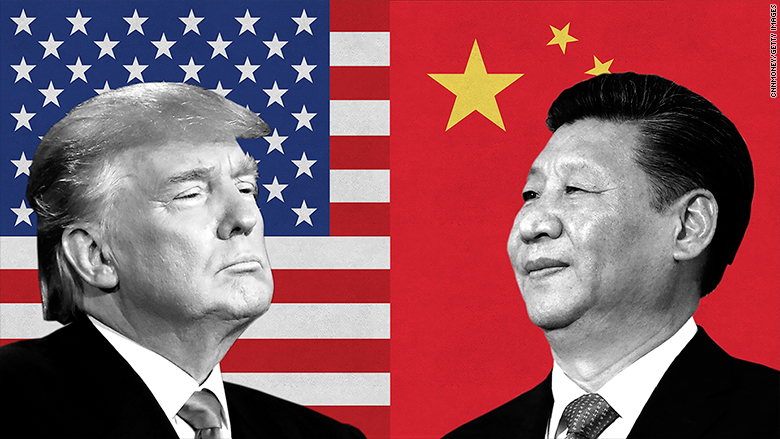The world’s second-largest economy has responded to President Donald Trump’s controversial trade tariffs.
China’s Commerce Ministry on Friday proposed a list of 128 U.S. products as potential retaliation target, according to a statement on its website.
The U.S. goods, which had an import value of $3 billion in 2017, include pork, wine, fruit and steel. A 25 percent tariff could be imposed on pork imports while dried and fresh fruit imports could see a 15 percent duty, the statement said.
The Commerce Ministry called on Washington to negotiate a settlement to the conflict over higher U.S. import duties on steel and aluminum but set no deadline.
Beijing’s move appeared to be a calculated step aimed at increasing domestic American pressure on Trump by making clear which exporters, especially farming areas that supported the president in the 2016 election, might be hurt.
The dispute has weighed on global financial markets amid concern it could spiral into a damaging round of retaliatory import controls by governments worldwide.
The higher American duties on aluminum and steel have little impact on China, which exports only a small amount of those products to the United States. But private sector analysts have said Beijing would feel obligated to take action to avoid looking weak in a high-profile dispute.
The country’s top economic official, Premier Li Keqiang, earlier appealed to Washington to “act rationally” and said, “we don’t want to see a trade war.”
The Commerce Ministry said the higher U.S. tariffs “seriously undermine” the global trading system. It rejected Trump’s contention they are needed to protect U.S. national security.
“The Chinese side urges the U.S. side to resolve the concerns of the Chinese side as soon as possible,” the ministry said. It appealed for dialogue “to avoid damage to overall Chinese-U.S. cooperation.”
Beijing reported a trade surplus of $275.8 billion with the United States last year, or two-thirds of its global total. Washington reports different figures that put the gap at a record $375.2 billion.
U.S. authorities also are investigating whether Beijing improperly compels foreign companies to hand over technology in exchange for market access, which could lead to still more trade penalties.
Goods targeted for possible higher tariffs in Friday’s list include pork and aluminum scrap. They would receive a 25 percent duty increase, mirroring Trump’s 25 percent tariff hike for steel.
The Commerce Ministry said China bought about $2 billion worth of those goods last year.
A second list targeted for 15 percent duties, the level of Trump’s charge on aluminum, includes wine, apples, ethanol and stainless steel pipe. The ministry said Chinese purchases of those goods last year were about $1 billion.
On Tuesday, the Chinese premier promised at a news conference that Beijing will “open even wider” to imports and investment as part of efforts to make its economy more productive.
Li said that included eliminating tariffs on drug imports. But he gave no other details and it was unclear whether the planned changes might mollify Washington, the European Union and other trading partners that complain China improperly blocks access to its markets and subsidizes exports.
(AP)











